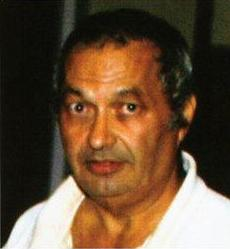In the shadowy world of stealth technology and military innovation, few names were as respected—or as ultimately reviled—as Noshir Gowadia. Once hailed as a brilliant aerospace engineer at Northrop Grumman, Gowadia played a pivotal role in developing the propulsion system for one of the most advanced aircraft ever built: the B-2 Spirit stealth bomber. But behind the curtain of his professional accolades lay a devastating betrayal—one that would compromise America’s most closely guarded military secrets and shift the balance of global power.
The Mastermind Behind the B-2's Stealth
The B-2 Spirit, known for its flying wing design and radar-evading capabilities, is one of the crown jewels of American military aviation. Designed during the Cold War to penetrate dense Soviet air defences, it remains one of the most formidable aircraft in the world. A key aspect of its near-invisibility to radar lies in its propulsion system, which minimises infrared signatures and reduces radar cross-section.
Noshir Gowadia was at the heart of this innovation. As a propulsion specialist at Northrop Grumman, he helped engineer the exhaust system that would allow the B-2 to remain virtually undetectable. His work was classified, critical, and instrumental in giving the U.S. Air Force a strategic edge in stealth warfare.
A Turn to Treason
However, the story of Gowadia doesn’t end with patriotic service. Driven by ego, greed, or a twisted sense of superiority—perhaps all three—he made a fateful decision: to sell America’s stealth secrets to foreign powers, including China.
In 2005, the FBI arrested Gowadia in Hawaii, where he had retired. Investigators discovered that he had been sharing classified information with multiple countries. Among them, China was a primary recipient. Evidence showed that Gowadia had helped Chinese engineers design a stealthy cruise missile exhaust system—strikingly similar to the one used in the B-2 bomber.
He even travelled to China multiple times to advise on military projects and sent emails containing sensitive technical data. His motive? Money, prestige, and the belief that he was indispensable to global defence advancement—regardless of national allegiance.
The Damage Done
The implications of Gowadia's betrayal were staggering. His disclosures enabled China to accelerate its stealth weapons programmes, posing new threats to U.S. aircraft carriers and reducing America’s technological edge. At a time when geopolitical tensions were rising in the Pacific, the leaked data had real-world consequences.
In 2011, Gowadia was sentenced to 32 years in federal prison for 14 counts, including communicating classified information to foreign governments and money laundering. The court called his actions a “betrayal of the highest order.”
A Wake-Up Call for National Security
The case of Noshir Gowadia serves as a harsh reminder that the greatest threats to national security can come from within. Espionage isn’t always committed by double agents in trench coats—it can stem from disgruntled geniuses who believe they are above the law. Despite his extraordinary contributions to American defence, Gowadia chose personal gain over patriotism.
His story has prompted tighter regulations, more rigorous background checks, and improved counter-intelligence monitoring across defence contractors and government agencies. But it also raises enduring questions: How do we protect our secrets in a hyperconnected world? And how do we identify those who might trade loyalty for wealth or fame?
Conclusion
Noshir Gowadia’s journey from a top-tier aerospace engineer to a convicted spy is a cautionary tale. It highlights the razor-thin line between brilliance and betrayal, and the devastating impact one individual can have on national security. As the U.S. continues to face evolving threats from rival powers like China and Russia, the lessons of Gowadia's treason remain more relevant than ever.



No comments:
Post a Comment